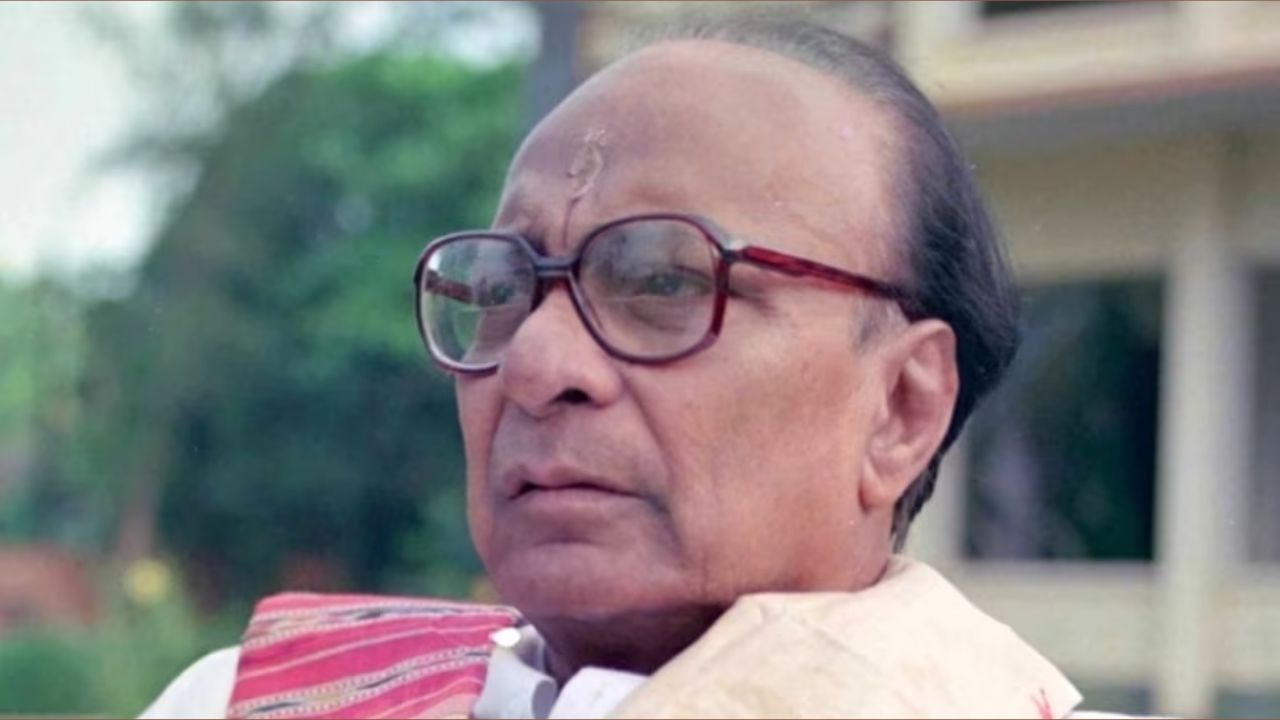Biju Patnaik Biography: Today marks the 25th anniversary of former Chief Minister Biju Patnaik’s passing in Odisha. In 1997, he passed away on this date.
Political leaders of all parties and citizens from all spheres of life paid tribute to the former prime minister. His son and Chief Minister Naveen Patnaik placed flowers at the statue of Biju Patnaik on Assembly grounds.
Biju Patnaik Early Life
Biju Patnaik, also known as Biju Babu, was born in Cuttack, Odisha, India, on March 5, 1916. He was Lakshminath Bezbaroa and Ashalata Patnaik’s second son. His father was a prominent attorney and political figure, while his mother was a social worker.
Biju Patnaik was raised in a cognitively stimulating environment, with his father’s passion for politics and his mother’s dedication to social welfare. He attended Ravenshaw Collegiate School in Cuttack and Scottish Church College in Kolkata afterwards.
During his college years, Biju Patnaik participated in the Indian independence movement, and in 1942 he joined the Quit India Movement. The British authorities arrested him and he spent several months in prison.
Biju Patnaik travelled to the United States after his release to pursue aeronautical engineering. He attended Berkeley University and the Massachusetts Institute of Technology (MIT). During World War II, he flew for the Royal Indian Air Force after obtaining his pilot’s licence in the United States.
Biju Patnaik returned to India in 1946 and joined the Indian National Congress to begin his political career. In 1961, he became the Chief Minister of Odisha, a position he held until 1963. In addition to being a member of the Indian Parliament, he also served as the Union Minister for Steel and Mines and Civil Aviation. Biju Patnaik passed away in New Delhi, India, on April 17, 1997.
Biju Patnaik Career
He had a distinguished political, aviation, and industrial career. After returning to India from the United States in 1946. He joined the Indian National Congress and launched his political career. 1952 saw his election to the Odisha Legislative Assembly, where he served as Minister of Planning and Coordination.
Biju Patnaik founded Kalinga Airlines in 1960, which subsequently evolved into Indian Airlines. He was also instrumental in the founding of a number of other businesses, including the Kalinga Iron Works and the Orissa Mining Corporation.
In 1961, Biju Patnaik became the Chief Minister of Odisha, a position he held until 1963. Known for his emphasis on development and infrastructure, he initiated several initiatives aimed at boosting the state’s economy during his time in office.
Biju Patnaik was elected to the Lok Sabha, the lower chamber of the Indian Parliament, in 1971 and served as the Union Minister for Steel and Mines in Prime Minister Indira Gandhi’s cabinet. He later became the Minister for Civil Aviation and was instrumental in the growth of the Indian aviation industry.
Biju Patnaik was also involved in international diplomacy, and he was instrumental in securing Indonesia’s independence from Dutch colonial authority. He played a crucial role in supplying military support for the Indonesian independence movement and was a close friend of President Sukarno.
Biju Patnaik passed away in New Delhi, India, on April 17, 1997. He is remembered as a visionary leader who contributed significantly to the expansion of the Indian aviation and steel industries and the development of Odisha.
Biju Patnaik’s personal life
Biju Patnaik’s personal life was marked by his passion for adventure and dedication to social welfare. His marriage to Gyan Patnaik produced two offspring, Nandini and Prem.
Biju Patnaik was known for his passion for flight and adventure, and he earned his pilot’s licence in the United States while studying. During World War II. He flew for the Royal Indian Air Force. He later founded Kalinga Airlines, which was instrumental in the development of the Indian aviation industry.
Biju Patnaik was also dedicated to social welfare and assiduously worked to improve the lives of the Odisha populace. He participated in a number of philanthropic endeavours and established the Kalinga Foundation Trust, which supports education and healthcare initiatives in the state.
In addition to his political and commercial endeavours, Biju Patnaik was also a skilled athlete and sportsman. He was an ardent tennis player who was instrumental in the growth of tennis in Odisha.
Biju Patnaik’s passion for adventure and dedication to social welfare persisted until the end of his life. He died on April 17, 1997, at the age of 81, in New Delhi, India.
Facts about Biju Patnaik
- The Indonesian President Sukarna’s daughter was named Megawati, which means deity of clouds, by Biju and Gyan. Megawati Sukarnoputri later became
- Indonesia’s first female president.
- Under the orders of Jawaharlal Nehru, he flew the 1-Sikh regiment led by Lieutenant Colonel Dewan Ranjit Rai into Srinagar, Kashmir in October 1947, right under the nostrils of the enemy.
- Even though he did not contest the election. He was elected to represent the North Cuttack constituency in the Odisha Legislative Assembly. From 1990 until his passing in 1997, he served as the Chief Minister of Odisha for two consecutive mandates.
- After the Emergency was proclaimed in the nation in 1975, he served two years in prison. During the Emergency, he was one of the first opposition leaders to be detained.
- He is credited with spearheading numerous initiatives, including the establishment of Kalinga Airlines, The Port of Paradip, Regional Engineering College (now NITR), Kalinga Tubes, Kalinga Refractories, the Kalinga newspaper, etc. He supported and promoted the state of Odisha’s industrial and academic development.
- Biju Baba, president of the Kalinga Foundation Trust, established the Kalinga Prize for the Popularisation of Science in 1952 with a donation. UNESCO awards the prize to those who communicate their scientific concepts to the general public.
- In 1962, under the direction of Biju Babu, the CIA and Indian Intelligence assisted in the formation of the Tibetan Guerrilla Force, which aided the Tibetan resistance against the People’s Republic of China.




